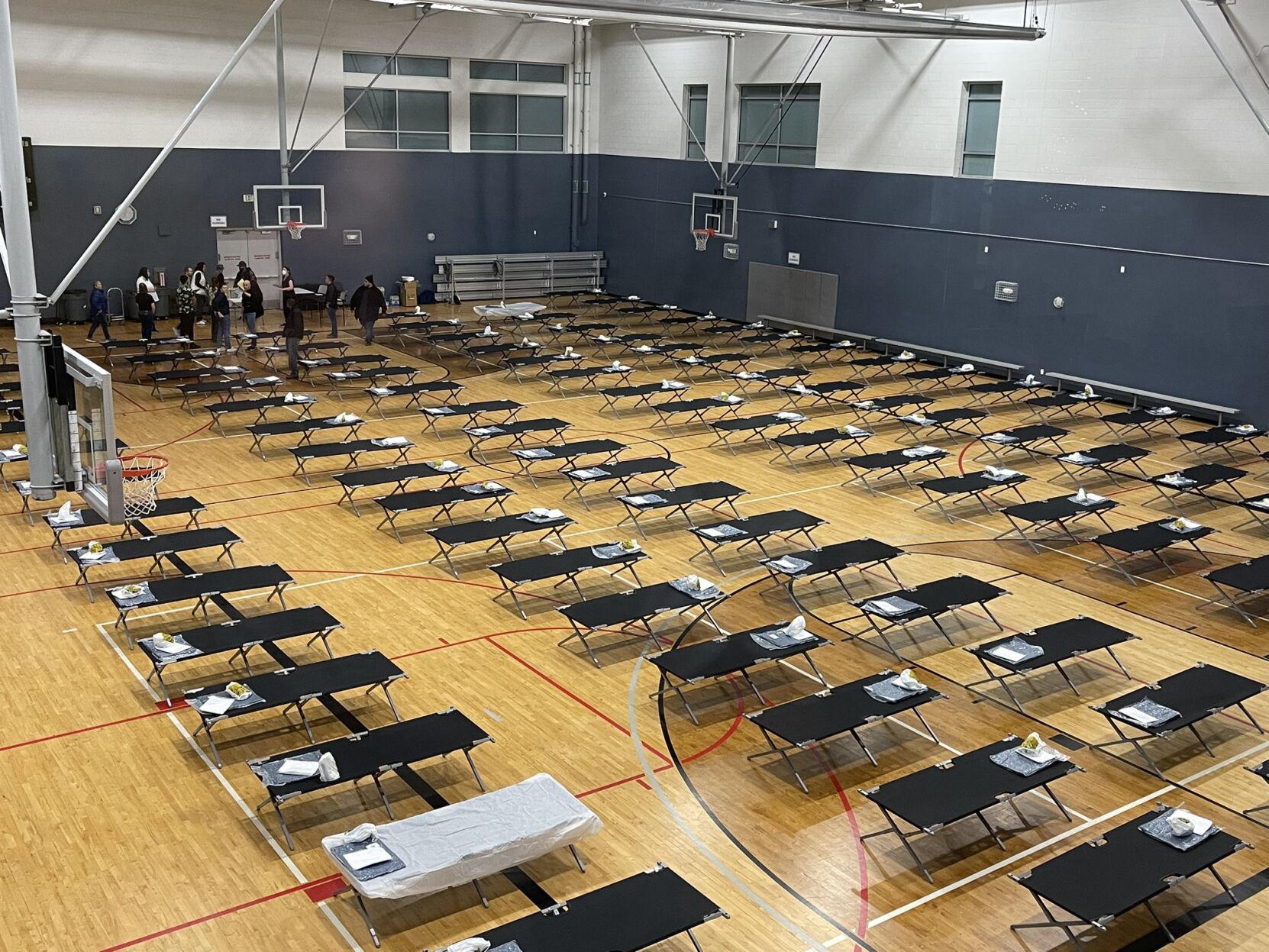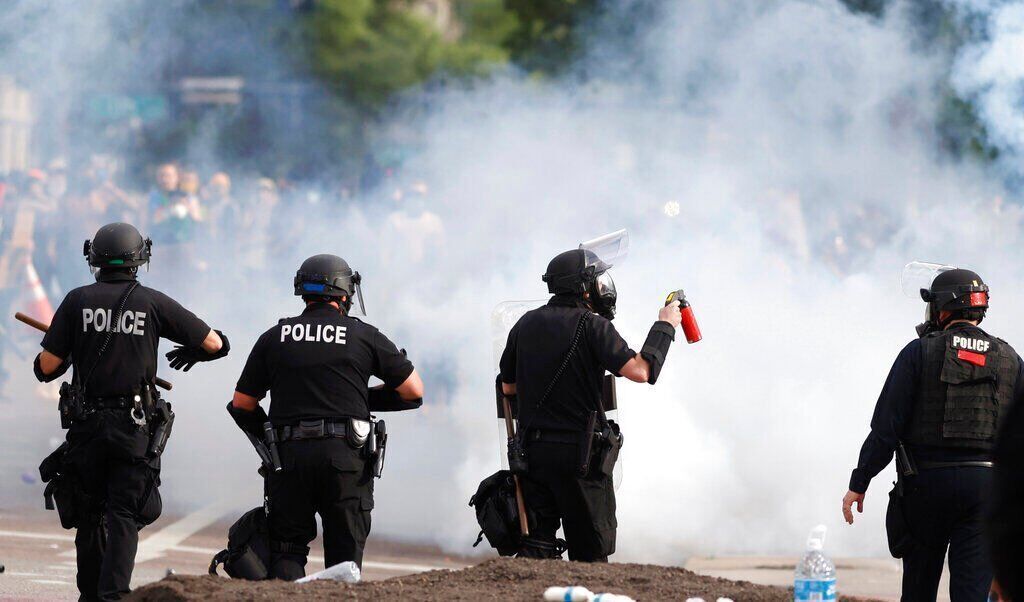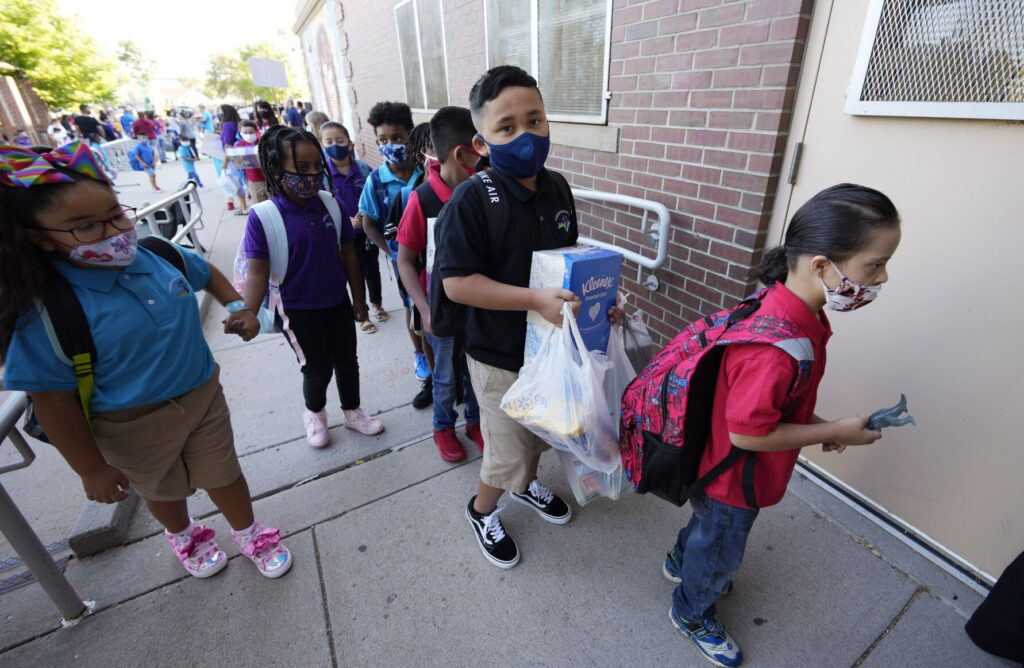Denver activates emergency shelter for 100 migrants who arrived overnight

Denver late Tuesday night scrambled to activate an emergency shelter for roughly 100 migrants who arrived in the city overnight, emergency authorities said.
The migrants are from the Southern border, the Denver Office of Emergency Management said.
The migrants have been housed at a city-owned recreational center.
“At this time, we are working to stand up an emergency shelter and we anticipate it will be in place while we work with non-profit partners to connect people with resources,” the department said.
The department said it would not release the name of the recreational center “due to the security and sensitivity of this evolving situation.”
Little else is known about the migrants or their situation. It’s not immediately clear, for example, if a border state, such as Texas, sent them to Colorado.
The first major influx of migrants had arrived in Denver several weeks ago. The asylum seekers had crossed the border from Mexico to the U.S. and turned themselves in to the U.S. Customs and Border Patrol. Those families, who are from Central and South American countries, arrived in Denver following a 12-hour drive from El Paso, Texas.
Denver has a reputation for being welcoming to migrants. During the 2019 crisis at the Southern border with Mexico, the city accepted three buses and created 72-hour shelters for people.
“Denver and Aurora are known as refugee cities,” Andrea Loya, executive director of Casa de Paz, said in an earlier interview. “And as a state, we are attractive to immigrant communities.”
Of the Denver group that arrived in November, half were children. Their arrival was a planned event, which took a month to coordinate.
The arrival of the new migrants on Dec. 6 occurred amid a heightened debate in Washington, D.C. about illegal border crossings.
Recently, a coalition of conservative-leaning states made a last-ditch effort to keep in place a Trump-era public health rule that allows many asylum seekers to be turned away at the southern U.S. border.
The 15 states filed what’s known as a motion to intervene – meaning they want to become part of the legal proceedings surrounding the public health rule referred to as Title 42.
The rule, first invoked by then-President Donald Trump in 2020, uses emergency public health authority to allow the United States to keep migrants from seeking asylum at the border, based on the need to help prevent the spread of COVID-19.
It’s set to end Dec. 21, potentially upending border enforcement as Republicans are about to take control of the House from the Democrats following midterm elections and are planning to make immigration a central part of their agenda.
The states argued that they will suffer “irreparable harm from the impending Termination of Title 42” and that they should be allowed to argue their position well before the Dec. 21 termination date.
Groups that advocate for immigrants’ rights have argued that the use of Title 42 unjustly harms people fleeing persecution and that the pandemic was a pretext used by the Trump administration to curb immigration. A judge on Nov. 15 ruled for the immigrants rights’ groups, calling the ban “arbitrary and capricious.”
If Sullivan’s ruling stands, it could have a dramatic impact on border enforcement. Migrants have been expelled from the United States more than 2.4 million times since the rule took effect in March 2020.
Sullivan’s ruling appears to conflict with another in May by a federal judge in Louisiana that kept the asylum restrictions in place. Before the Louisiana judge’s decision, U.S. officials said they were planning for as many as 18,000 migrants a day under the most challenging scenario, a staggering number. In comparison, in May, migrants were stopped an average of 7,800 times a day, and that was the highest of Biden’s presidency.
Carol McKinley and the Associated Press contributed in this article.















